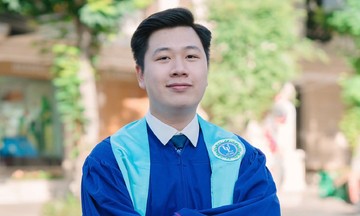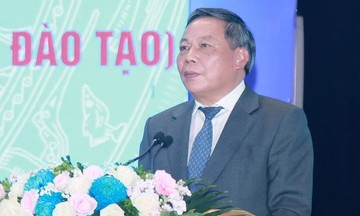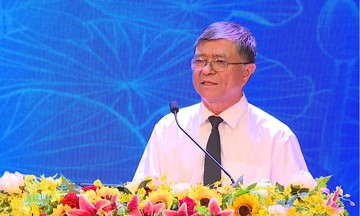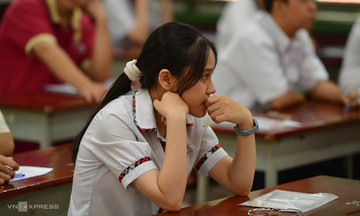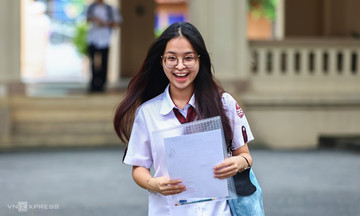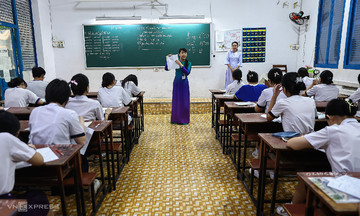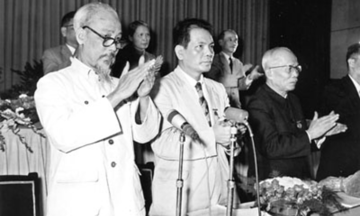Nguyen Hoang Long, 22, graduated from the University of Science, Vietnam National University, Hanoi. He was part of the K66 cohort of the Talented Bachelor's Program, majoring in mathematics. Out of over 900 graduating students, Long achieved the highest GPA.
"I never aimed to be the top graduate," Long shared. "For me, the accumulated knowledge during my studies is more important."
Long reiterated this sentiment during his graduation speech on the afternoon of 13/7. He explained that beyond the valuable knowledge gained in lectures, the most important skill he acquired was "the ability to ask questions."
Long sees this as a fundamental human instinct. As children, people constantly question the world around them. However, he realized he had unconsciously stopped asking questions as he grew older, prioritizing solving as many exercises as possible. This changed during university. Instead of focusing on quantity, professors encouraged in-depth understanding through questions: What do we want to do? What must we do? Why must we do it this way? Can we improve it?
"This rekindled my curiosity, and I began to appreciate the process of thinking and questioning more than just the end result," Long said. "Thanks to this experience, I've come to understand the saying: 'Life is a journey, not a destination.'"
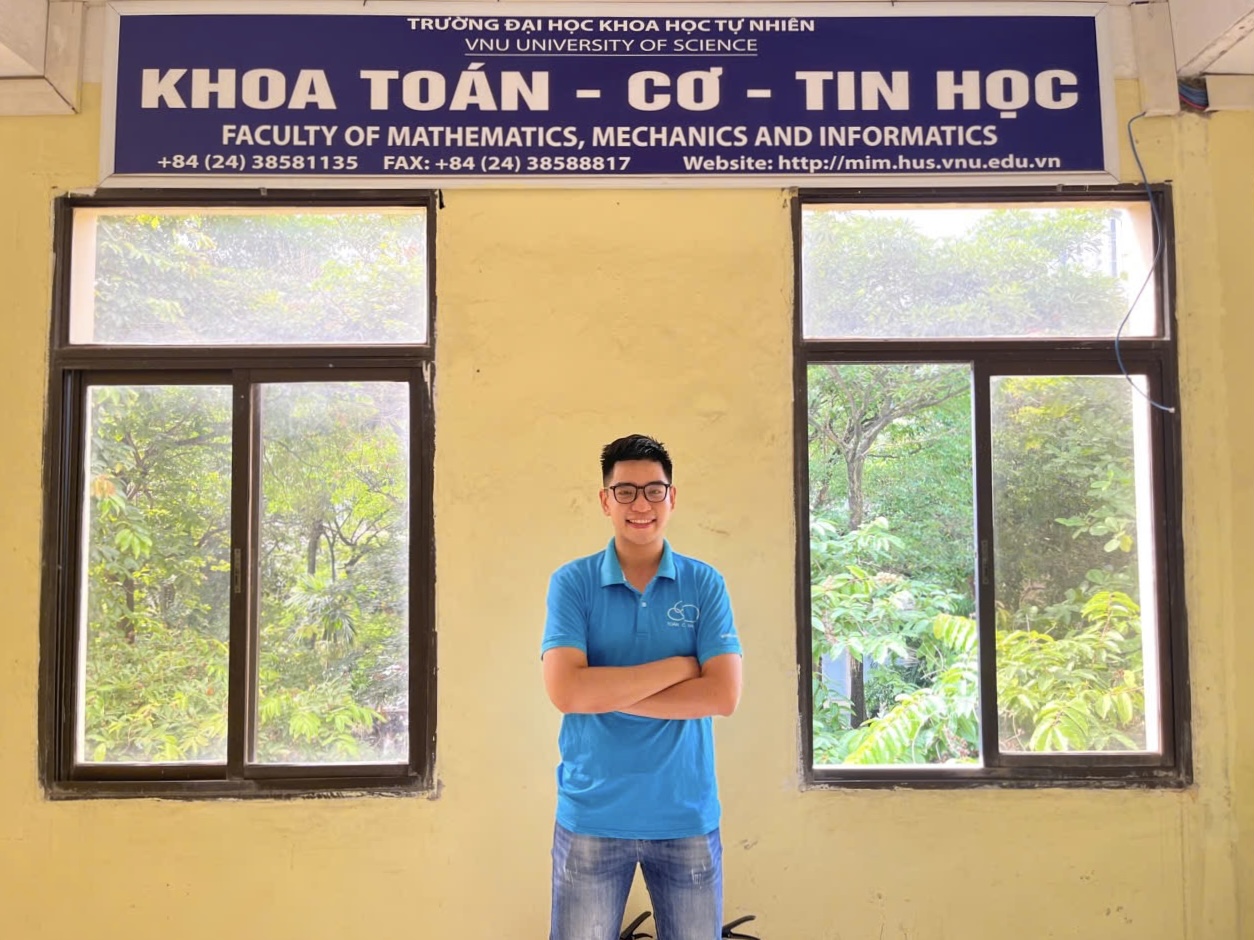 |
Nguyen Hoang Long. Photo courtesy of the subject |
Nguyen Hoang Long. Photo courtesy of the subject
Long's journey into advanced mathematics was somewhat serendipitous. When taking the entrance exam for 10th grade, he decided to try for a specialized high school. He chose mathematics at Chu Van An High School in Hanoi because it was his best subject, and he "could solve many problems in class."
"After being accepted, I started taking the subject seriously," Long recounted. He began exploring advanced materials, including foreign resources, and was selected for the city and then national math Olympiad teams.
"Initially, I had to use translation tools, but I got used to it with practice. By 11th grade, I could read English materials comfortably," Long recalled.
In 11th grade, Long won third prize in the national math competition, followed by first prize the next year. While having no clear idea of a mathematician's work, he dreamt of becoming one simply because he excelled at math. He chose the University of Science and was directly admitted to the Talented Bachelor's Program in mathematics.
Throughout his four years, Long remained among the top students in his program. His study secret was breaking down the material into weekly reviews to avoid last-minute cramming.
"Before each exam, I usually consolidate my knowledge over 5 to 7 days by writing down the main topics and recalling the lectures," Long explained.
Among his courses, Long particularly enjoyed Linear Algebra 3. Exposure to algebraic geometry inspired him to delve deeper. He began self-studying using the renowned book "The Rising Sea: Foundations of Algebraic Geometry" by Professor Ravi Vakil, President of the American Mathematical Society.
"After some exploration, I found this topic fascinating, especially the singularity theory. But to progress further, I needed someone to discuss it with," Long said.
Following advice from senior students, Long approached Dr. Le Quy Thuong in his second year, seeking guidance and joining his research on higher-order Jacobian ideals and p-adic integrals (fields within algebraic geometry).
By his third year, Hoang Long recognized the potential of the Igusa local zeta function of plane curve singularities and began researching it, developing further research ideas.
That summer, Long independently conducted a purely theoretical research project: "The Igusa local zeta function of certain Thom-Sebastiani type functions," under Dr. Thuong's supervision. This project won first prize at the 2025 Student Scientific Research Conference organized by the faculty and university.
Long believes these experiences honed his thinking and research approach, providing a crucial foundation for his thesis on two problems related to the Igusa local zeta function.
Initially, Long devoted significant time to writing and developing the results, encountering and overcoming numerous conceptual roadblocks. In the final stages, he meticulously translated his calculations from English to Vietnamese and formatted them according to university requirements. His thesis subsequently received a perfect score.
Beyond academics, Long actively connects with fellow math enthusiasts through the "Anything Goes" club. As president, he fosters an open academic environment, facilitating discussions between faculty and students across different years on their favorite mathematical topics.
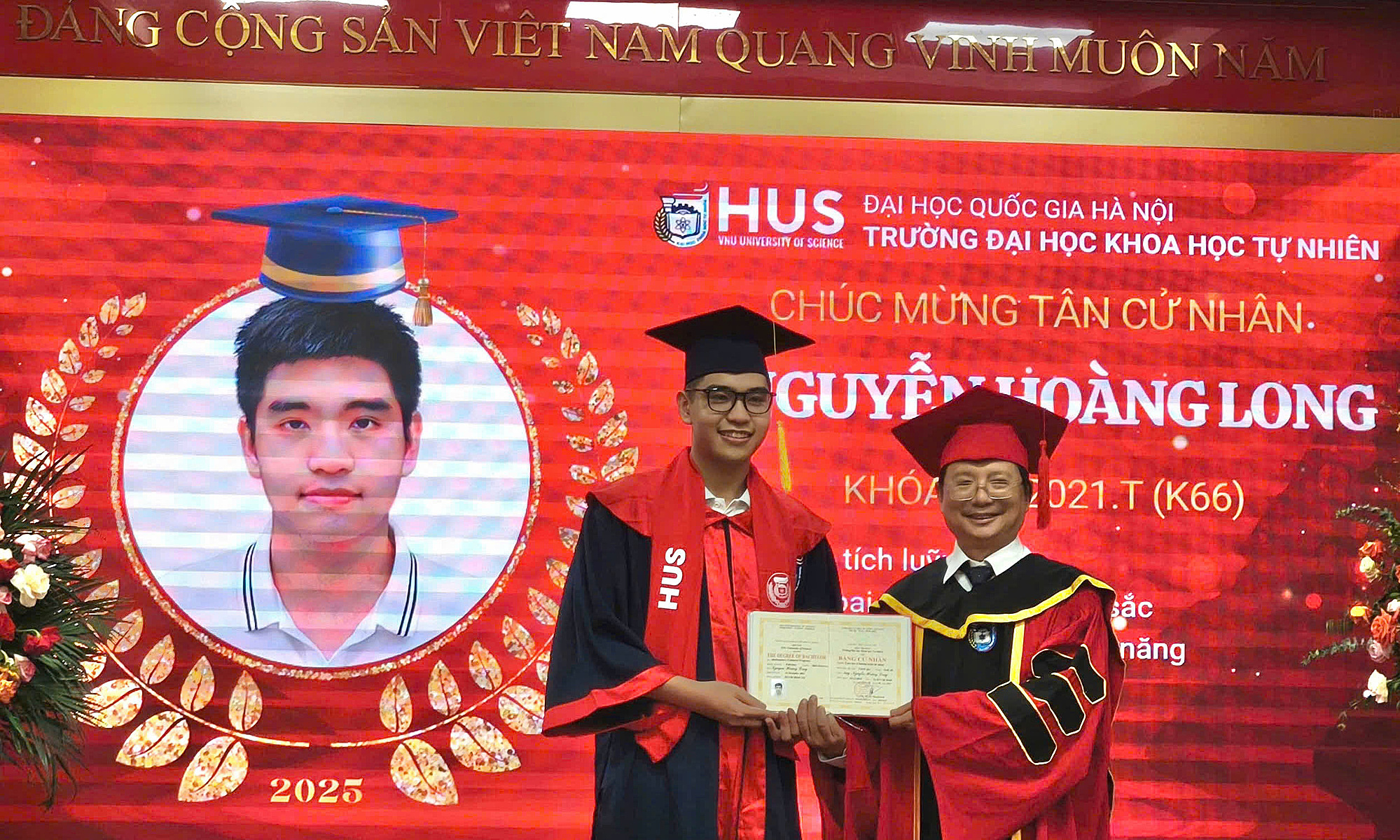 |
Hoang Long receives his diploma from Professor Vu Hoang Linh, President of the University of Science, on the afternoon of 13/7. Photo: HUS |
Hoang Long receives his diploma from Professor Vu Hoang Linh, President of the University of Science, on the afternoon of 13/7. Photo: HUS
Associate Professor Le Quy Thuong, Long's advisor, praises his quick and accurate thinking and reasoning.
"During our collaboration, Long consistently presented novel ideas and unexpected solutions to challenging problems I hadn't considered," he said. Dr. Thuong is also impressed by Long's diligence, passion for expanding his knowledge, and willingness to discuss and question topics of mutual interest.
Determined to pursue mathematics seriously, Hoang Long plans to continue his studies with a master's degree in algebra and number theory at the University of Science.
"I want to pursue mathematics as a long-term career," Long stated, expressing his aspiration to seek a doctoral scholarship in the US or Europe.
Huyen Trang - Hai Yen



